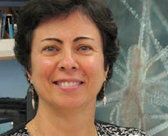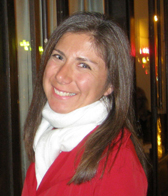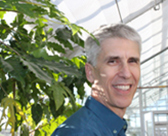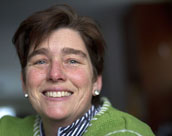Dr. Jennifer Busch
Physiologist
Dr. Busch’s research focuses broadly on signal transduction and specifically on kinases, an important class of proteins within these transduction pathways. She studies mechanisms by which specific kinases modulate cellular responses to stressors.
Dr. Nadine C. Folino-Rorem
Marine & Invertebrate Zoologist
Dr. Rorem and her research students are studying the ecology and molecular taxonomy of the invasive colonial hydroid, Cordylophora. Current areas of interest are how physiological adaptations may explain the global distribution of this invasive hydroid and the predatory role of this hydroid in aquatic systems. She is also interested in cnidarian biology with a focus on freshwater cnidarians.
Dr. Vanya Tepavčević
Microbiologist
Dr. Tepavčević studies how bacteria regulate gene expression at the post-transcriptional level. She uses a marine bacterium, Vibrio fischeri, an exclusive symbiont of the Hawaiian bobtail squid, Euprymna scolopes, as a model system to investigate how small non-coding RNAs (sRNAs) and their chaperones regulate gene expression. Specifically, the lab is looking at the regulation of processes required for Vibrio colonization of the squid light organ, including motility, biofilm formation and bioluminescence.
Dr. Raymond J. Lewis
Botanist
Dr. Lewis' research involves characterizing factors such as salinity, nutrients, pH and pheromones, that control the growth and reproduction of the large marine brown algae known as kelps.
Dr. L. Kristen Page
Ecologist
Dr. Page’s research involves answering questions about how diseases are transmitted, and trying to understand how disease transmission changes as humans alter landscapes and habitats. Many of the projects conducted with her research students investigate the transmission dynamics of raccoon roundworm in urban landscapes.
Dr. Rodney J. Scott
Geneticist
Dr. Scott uses techniques of molecular biology (microsatellite markers and molecular barcoding) to conduct studies in conservation genetics. He has studied freshwater turtles in Costa Rica and in Illinois, he has studied an endangered species, the Blanding’s. He is currently working with the DuPage County Forest Preserve and Biologists at the Shedd Aquarium to conduct a microbiome study of a Blanding’s turtle “head start” program. He is also collaborating with the DuPage County Forest Preserve to study genetic patterns associated with the spread of invasive zebra mussels among several Forest Preserve lakes. Other current projects focus on the biogeography and phylogeny of local fishes.
Dr. Nathaniel Thom
Neurobiologist
Dr. Nathaniel Thom is interested in modifying factors that promote an adaptive response to stress. More specifically, he uses psychophysiological and neuroimaging methods to better understand how physical and mental training programs alter brain-behavior relationships in ways that promote a healthy response to and recovery from stress. Dr. Thom’s research evaluating interventions to promote physical activity, has also provided an interest in advanced statistical techniques including meta-regression and structural equation modeling, which he employs when analyzing brain imaging data.

